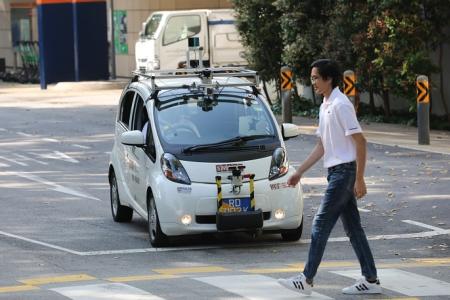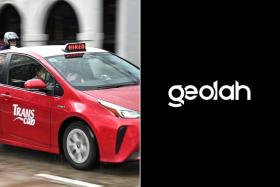LTA to test self-driving minibuses, goods vehicles
Self-driving minibuses and logistic vehicles might soon be navigating Singapore’s streets, as the Republic moves to deploy more of these autonomous vehicle (AV) technologies on the roads.
Transport Minister Chee Hong Tat said the authorities would focus on these two types of vehicles in the near term, because they can be deployed at scalable numbers along fixed routes, and mature examples of these technologies have been used commercially overseas.
“The deployment risks can be more carefully managed with lower vehicle speeds and time of use,” he said.
“Equally importantly, these use cases can help address our pressing manpower challenges in the logistics and public transport sectors, where it has been challenging for operators to hire drivers.”
Mr Chee was speaking to over 5,000 transport professionals at the opening ceremony of the biennial Singapore International Transport Congress and Exhibition (SITCE) on Nov 6.
Already, the Land Transport Authority (LTA) has approved the use of self-driving vehicles in two instances - facility management firm Chye Thiam Maintenance’s electric robo-sweepers are used on Airline Road and Marina Coastal Drive, and supermarket chain FairPrice Group’s electric logistics vehicles transfer goods between its distribution centres in Benoi and Joo Koon.
In both these instances, the AVs have pased LTA’s tests and have good track records overseas, said Mr Chee, who added that LTA is ready to work with other firms interested to tap these vehicles.
Mr Chee also said LTA would buy autonomous minibuses to deploy them here in partnership with a public bus operator.
This roll out will begin first on “less technically challenging” bus routes with lower traffic and ridership levels, before being expanded to more challenging routes after experience is gained from initial trials.
“The minibuses will also have a safety driver onboard and will be monitored for reliability in the early days, before we transit to having a remote safety operator controlling the vehicle from afar,” said Mr Chee.
When asked, LTA said tests have not started and more details will be shared when ready.
Mr Chee said Singapore was starting with these two types of AVs instead of robo-taxis. This is because the latter are more challenging to operate as they travel on different routes to provide point-to-point services.
That said, he added that Singapore is open to exploring proposals involving robo-taxis.
Mr Chee cited the significant developments in the roll-out of driverless vehicles in China and United States, and said Singapore first started to do this in 2015, but its progress in this area has been much slower than previously anticipated.
Acknowledging that the authorities want to move faster on this front, Mr Chee said it was also important to do so safely in the dense urban environment here, and ensure that different parts of the AV ecosystem is ready.
He pointed out that LTA has developed a revised testing and assessment framework that will test AV technologies from abroad in a circuit, before deploying them on set real-world routes.
LTA will closely monitor the performance data of these self-driving vehicles, noted Mr Chee, and assess its ability to operate safely and reliably in the local environment, including in conditions such as heavy rain. Following that, the routes can be expanded progressively in scale and difficulty, subject to the vehicle’s performance.
“Before any AVs are put on the road, they will be programmed, tested and trialled thoroughly to minimise the risks. However, just as with human drivers, we must be mentally prepared that there will be some accidents involving AVs,” said Mr Chee.
When this happens, Mr Chee said the authorities would investigate and study the data before making an assessment about whether the AV would be safe to operate.
Not accepting any risk at all would mean Singapore would fall behind other cities, he added.
“Our approach cannot be to insist on ‘fail-safe’, but to design our systems to minimise risks and if failure were to happen, it will be ‘safe-fail’,” he said.
Get The New Paper on your phone with the free TNP app. Download from the Apple App Store or Google Play Store now


